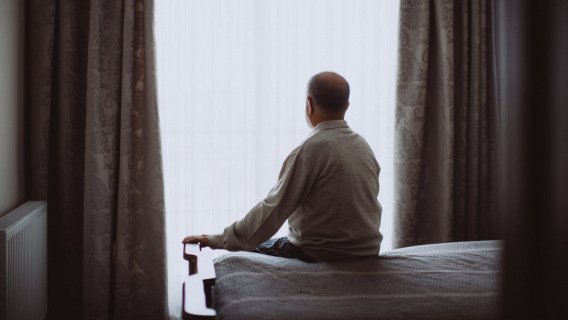
In the last several decades that mental health has been widely studied in cancer patients, research has consistently demonstrated that cancer patients experience much higher rates of depressive symptoms than people without cancer. Depending on how depression is measured in those studies, results indicate that between 30-60% of cancer patients meet the criteria for a diagnosis of depression.
Because mesothelioma is so rare, studies about depression in only mesothelioma patients are scarce, but it is reasonable to assume that there is a similar incidence of depression among mesothelioma patients. By comparison, the overall incidence of depression in adults in the U.S. is between 8-10% at any given time.
Why Are Depression Rates Higher for Mesothelioma Patients?
Why would there be such a high prevalence of depressive symptoms in mesothelioma patients? There are a variety of reasons that include all the physical, emotional and social changes and challenges that mesothelioma patients are facing.
For example, we know that chemotherapy affects brain chemistry and the neurotransmitters (such as dopamine and serotonin) that regulate our mood. Poor sleep and fatigue because of pain, anxiety, hormonal fluctuations and side effects of mesothelioma treatment can lead to worsening mood.
It is quite common for cancer patients to be preoccupied with health concerns, to have negative thoughts about their future, to cry more often and to feel hopeless at times. For a variety of reasons, many mesothelioma patients may be socially isolated, which contributes to depression onset.
Not feeling well enough to travel to see family or friends may keep mesothelioma patients feeling isolated. Having to stop work or social activities because of treatment reduces opportunities to socialize with workmates and peers. Fear of catching a cold when you are immunocompromised also keeps people at home and isolated. All of these are contributing factors to why depression is more prevalent in cancer patients.
Symptoms and Types of Depression in Mesothelioma Patients
There are several different clinical diagnoses of depression that are common in people dealing with any cancer diagnosis: Major depressive disorder, dysthymia, and adjustment disorder with depressed mood. Among these depression diagnoses are a variety of physical, emotional and psychological symptoms including:
- Change in sleep (insomnia or hypersomnia)
- Fatigue
- Feeling sad or hopeless
- Feeling worthless/excessive guilt
- Loss of interest in activities
- Low self esteem
- Poor concentration, memory and decision making
- Significant change in weight
- Thoughts of death or suicide
While many people may experience some of these symptoms occasionally, a clinical diagnosis of a depressive disorder requires that someone feel sad or hopeless most days for at least two weeks and experience most of the listed symptoms for an extended period of time.
Many of the symptoms of depression have a physical component and are also very common side effects of mesothelioma treatment such as changes in weight, fatigue, sleep problems and poor memory and concentration (aka “chemo-brain”). Because of the complexity of differentially diagnosing depression in cancer patients, only a physician or a mental health professional should make a diagnosis of depression. If you or a loved one is experiencing some of the above symptoms, it is very important to report them at your next appointment.
Underreporting and Underdiagnosing Depression
Sadly, mesothelioma patients tend to underreport their depressive symptoms. Patients often focus their conversations at doctor visits on their physical mesothelioma symptoms and medical concerns, such as scan results and treatment planning.
It’s also likely that mesothelioma patients may want to give the impression that they are being a good patient, portraying a positive attitude to their health care providers. Underreporting symptoms to doctors leads to underdiagnosing depression, which further leads to undertreating those depressive symptoms.
One of the challenges of overcoming depression is that negative thinking patterns and hopelessness are common symptoms of depression. This can lead to self-talk that says that nothing will help you to feel better, so what is the point of talking about it with your loved ones or your physician?
Letting your oncologist know about all your symptoms (not just the physical ones), however, opens the door to treatment options available to help you feel significantly better.
Editor’s Note: This is Part 1 of a two-part blog series. Part 2 discusses treatment options that have helped many mesothelioma patients overcome their depressive symptoms.




